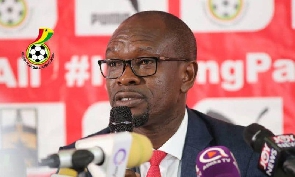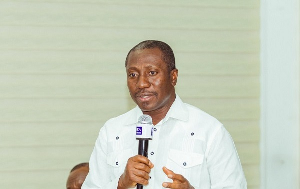Calls for the prohibition of multi-campus teaching by some Ghanaian lecturers and professors are grossly misplaced. And to be certain, the practice may be global in scope, at least as yours truly has been able to observe in Western democratic cultures. And the reasons behind such pedagogical practice are equally divergent, and they range from the purely economic, sheer desire or interest and underemployment. At the State University of New York (SUNY) community college where I have been teaching for some twenty years, roughly sixty-percent of the faculty are adjuncts or part-timers, the overwhelming majority of whom have other part-time jobs.
Sometimes, some of these faculty members have full-time jobs at other tertiary institutions or in non-academic firms and establishments, ranging from ICT companies, elementary and secondary schools and the civil service at large. For a remarkable number of teachers, the decision to teach at several tertiary academies at a go has to do with their inability to secure full-time jobs that offer adequate or satisfactory fringe benefits, such as health or medical insurance and social security and other retirement benefits. This category of educators is in the majority in an increasingly constricted job market, particularly for tertiary educators in the social sciences, liberal arts and the humanities.
It is absolutely necessary for the foregoing category of teachers to hold at least two jobs, if they are not to find themselves rendered practically homeless. Indeed, prior to securing my present full-time job, I had taught simultaneously at two community colleges within the City University of New York (CUNY) system, namely, the Borough of Manhattan Community College (BMCC), where I had been offered a permanent or “tenured” adjunct teaching appointment, and LaGuardia Community College (LaGuardia or LCC). Indeed, so taxing was the energy and hustle involved in traveling from one campus to another that sometimes I found myself dozing off and snoring on trains that I ended up overshooting, or missing, my exit stops.
And so I can perfectly understand former GIMPA Rector Prof. Stephen Adei’s argument against lecturing for more than 16 hours per week, I suppose, in particular because of the considerable toll that such cranially exacting pedagogical regimen does take on the quality of one’s teaching and one’s ability to effectively conduct research, either one geared towards publication in academic journals or towards the salutary and indispensable upgrading of one’s lecture notes and knowledge in one’s field of specialty.
Sometimes the decision to teach at multiple campuses has more to do with the subject’s desire to share knowledge and thus facilitate the enhancement of his/her stature in one’s discipline or field of expertise, especially among the category of lecturers and professors who have distinguished themselves into becoming what is often termed as “Star Professors” or leading practitioners of their trades. In Ghana, while I was in secondary school, there were quite a significant number of teachers who commuted from campus to campus delivering lectures on test-taking and study skills for which they were handsomely paid.
Oftentimes, these “Star Teachers” would come along with a compilation of lecture notes and a sampling of frequently featured exam questions which they sold for relatively handsome profits. As a sixth-form National Service Teacher at the Osu Presbyterian Secondary School (Osu-Presec or Sendo), I had occasion to also lecture once or twice at Accra Academy High School, accompanied by one of my students, the late Mr. Jonathan Ayiku, of Big Ada, who managed to get a couple of his Accra Academy friends to corral a dozen, or so, students. “Accra Aca,” as the school was affectionately known, discouraged this practice of pedagogical poaching because most of the teachers on staff were veterans who also served as examiners for the West African Examinations Council (WAEC).
In Ghana, as also here in the United States, the problem of multiple-campus teaching appears to be substantially driven by economic sustenance rather than being necessarily a direct feature of the theory of supply-and-demand or demand-and-supply, as we used to say in Ghana. It is not necessarily driven by a serious shortage of qualified personnel but rather inadequate compensation of teachers and educators. But that, generally speaking, Ghanaian governments have not been very supportive of academic research means that attempting to stanch the practice of multi-campus teaching, as a means of encouraging more productive research on the part of lecturers and professors, is an absolute joke.
*Visit my blog at: kwameokoampaahoofe.wordpress.com Ghanaffairs
Opinions of Monday, 25 July 2016
Columnist: Okoampa-Ahoofe, Kwame














